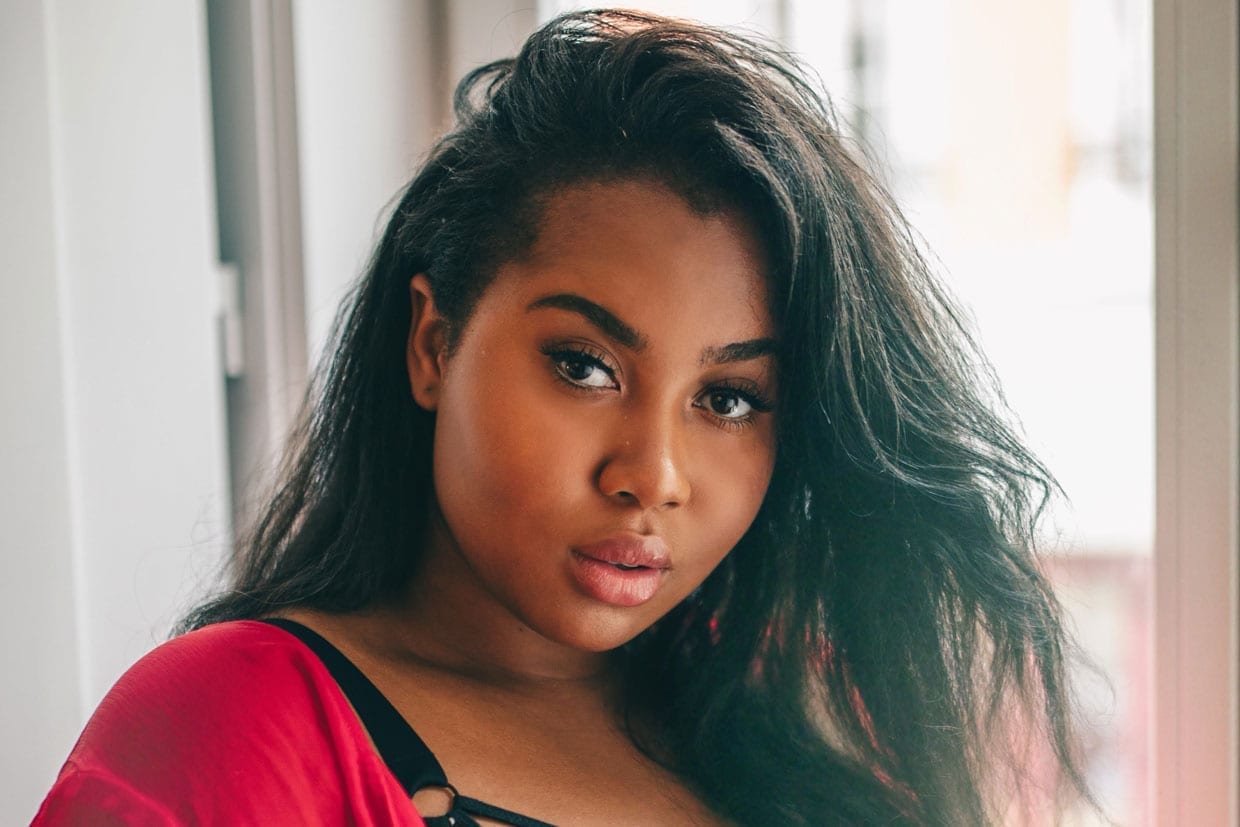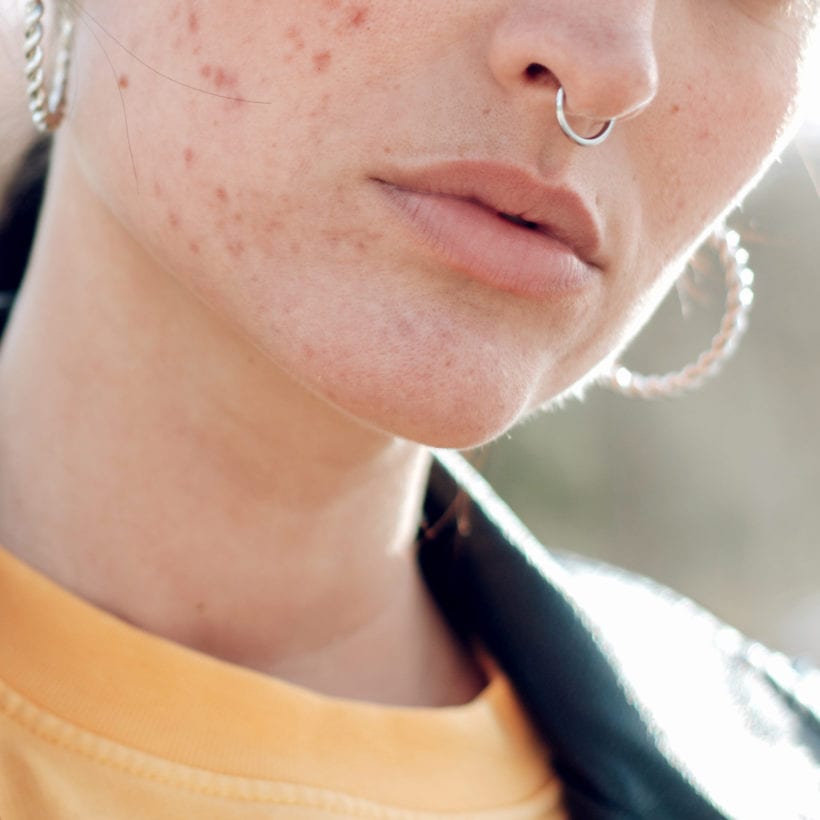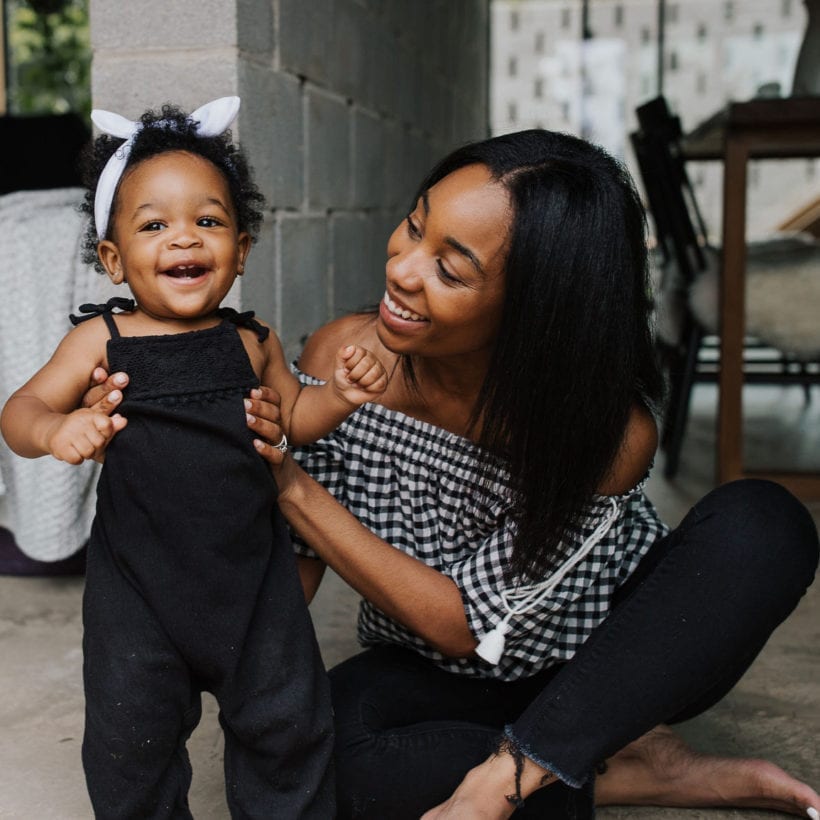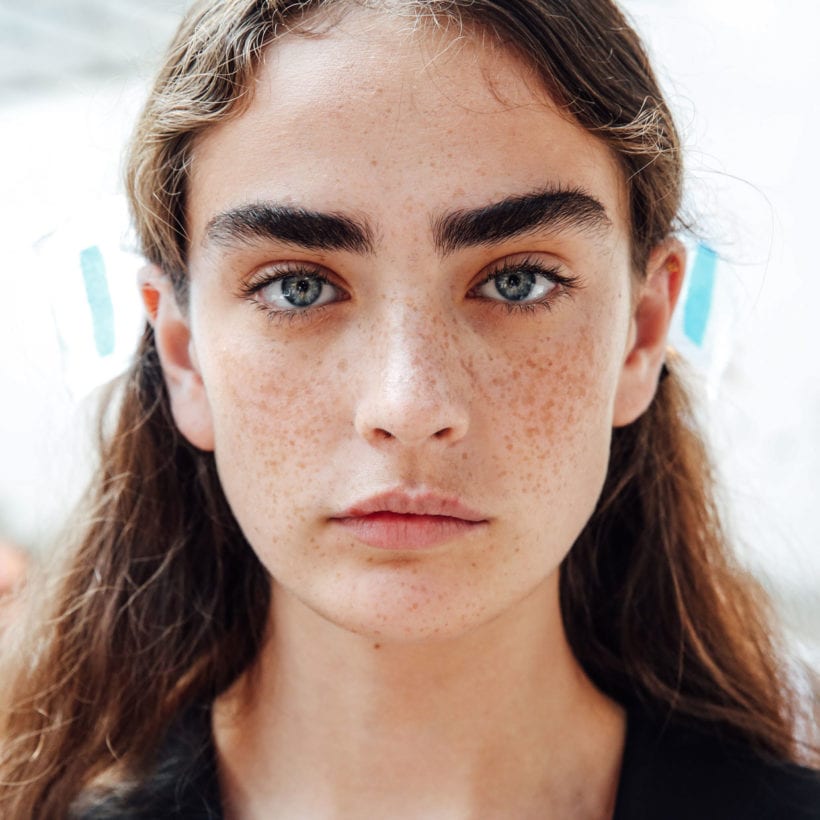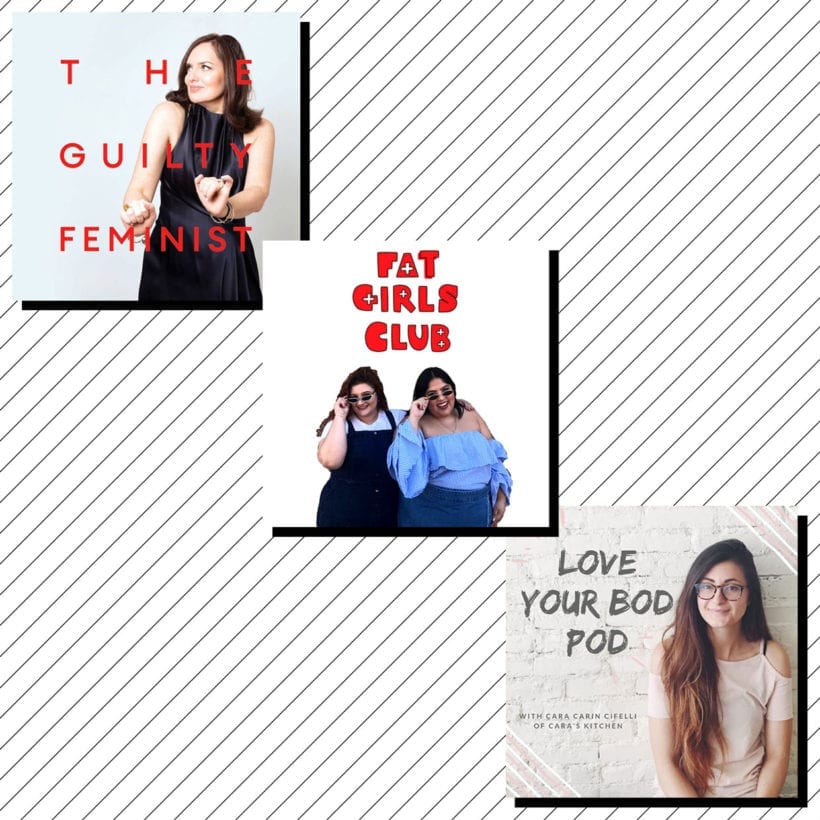Self-acceptance is a hot topic these days. Closing out National Eating Disorder Week and celebrating International Women’s Day, “Riverdale” star Camila Mendes and “Silicon Valley’s” Amanda Crew — in collaboration with co-founder and CEO of Project HEAL Kristina Saffran — drafted an open letter on that same topic: body diversity and body neutrality. Both eating disorder survivors, Crew and Mendes want you to know one thing: Your worth is not connected to your body. And that society’s ideals are unrealistic — in fact, the average American woman is a size 16-18.
“Diversity is one of the best parts of existing on this earth. If everyone looked and acted the same, what would be the point?” says 19-year-old Tess McMillan. McMillan is a curve model and newer face on the scene — she signed her contract with Muse Management NYC in January 2017. The Texas-born redhead’s first big break followed in 2018 with a British Vogue shoot, and she has been picking up momentum ever since.
And while McMillan might be new to the industry, body diversity, whether it be positive or negative, has been an integral part of many models’ — and others’ — experiences. Ali Tate Cutler and Molly Constable both started modeling seven years ago. Cutler, a self-proclaimed body activist, collaborated with sustainable fashion brand Reformation on a plus-size line last year. Constable can be seen in Rihanna’s Savage x Fenty campaigns.
“I have seen a huge shift in the casting process over the past couple of years. Curve models are getting booked on jobs we never would have thought possible,” Cutler says. Constable agrees: “I have definitely seen a change — maybe not in a huge colossal way — but … change takes time. We really need to continue to open the casting director’s eyes to beauty beyond white, thin girls.”
Twenty-one-year-old Lauren Nicole Coppin Campbell — who has modeled swimwear with Felicity Hayward — says she entered the industry at a great time. “It was the year of Ashley Graham’s Sports Illustrated cover [2016], and it almost felt like everyone was adopting this change for diversity and being more inclusive.”
But these women, all in an ever-changing industry, have voices of their own. Body positivity is on the rise — although all are wary of the sincerity of campaigns — and these four, spanning different ages and careers, are all helping to make the change.
Lauren Nicole Coppin Campbell
https://www.instagram.com/p/Bsv95xdAfKJ/
Q: What are your thoughts on body positivity campaigns?
I think they are great. However, I do often fear that they aren’t coming from a genuine place. Is this brand doing it for headlines? Do they truly care about representing everyone? I think the Universal Standard campaign is a valid example of this. La’Shaunae Steward recently took to her Instagram stories to explain how Universal Standard was using her body as an example of a size that she is not — saying she was a size 30 when she is a size 24. How does Universal Standard or any other brand benefit from that? Headlines.
Q: What has been most inspiring in your career?
Being a part of the plus-size community, and being able to have vulnerable, often personal and genuine conversations with women (and men) who just get it. I’m forever inspired by my peers.
Q: Do you think Instagram is helping or hurting the body positivity movement?
I think Instagram has helped and hindered the body positivity movement. Some would argue its moved more and more away from its origins and become more of a trend. Others might argue it has helped to spread the message. Either way, I can see both the pros and cons.
Q: How do you practice self-care?
Knowing when I need to step away from my phone. The other day I was browsing through my [Instagram] explore page, and one negative thought after the other came as I was scrolling. For my own sake, I had to just get off social media and walk away from my phone. Also, giving myself permission to feel whatever it is I’m feeling, whether that’s sad, angry or frustrated … Sometimes self-care is just allowing yourself to cry for a bit, and then getting up and carrying on with your day.
Ali Tate Cutler
https://www.instagram.com/p/BsYrF2hB2aV/
Q: What are your thoughts on body positivity campaigns?
I feel mixed about a lot of these body positivity campaigns. On one hand, it’s great that people are being reminded through the media that all bodies are good bodies. However, anytime corporations get involved with social trends it makes me wary. Capitalism monetizes these trends and exploits them for their own ends, which is always to make money. That always tends to make these impactful movements watered down.
Q: What has been most inspiring in your career?
The fact that at any time, a model could book a huge job that changes her career. I have seen some awesome girls book these beautiful jobs that push the envelope and are so creative, and just rise to the next level. I love seeing that happen.
Q: Do you think Instagram is helping or hurting the body positivity movement?
I think Instagram has massively evolved the body positive movement. It has made room for voices who might not necessarily have a platform and given a voice to all types of bodies.
Q: How do you stay positive?
I stay positive through constant self-care. I know the more plant-based I eat, the more I move my body, the more I meditate and connect with others, I am happy. I use affirmations as a great way to reinforce my mental chatter and change it when it gets negative. I use my podcast called “The Love You Give” as a way to hear all types of stories from people pursuing wellness, and I take advice from all of them. I pick up what serves me on my quest to health and happiness and leave what doesn’t.
Tess McMillan
https://www.instagram.com/p/BucIKyqA0B5/
Q: What are your thoughts on body positivity campaigns?
It’s so important to remind people that beauty doesn’t just encompass one form, it’s diverse and varied. Beauty isn’t just a list of boxes to check off, it’s unique and special and doesn’t always look the same.
Q: Do you think Instagram is helping or hurting the body positivity movement?
Do you know how people are always talking about how 95 percent of the ocean is unexplored? Well, I think 95 percent of Instagram is unexplored. But, in the end, the great thing about it is that it connects people. I think it makes people feel so much less alone, and so much more hopeful, when they can see people out there that they relate to.
Q: What are your thoughts on skin positivity and embracing imperfections?
I think every movement in which people are embracing all parts of themselves as beautiful is fantastic. With that being said, I think we should stop using words like “imperfections.” Whatever way you are, however you look, it’s not imperfect, because it’s you and that’s so special. Just because someone’s skin might not look like a model’s perfect (keep in mind, often photoshopped) skin on the glossy pages of a magazine, doesn’t make it imperfect … just maybe a little different from the next person.
Q: How do you practice self-care?
Self-care for me is spending time in nature. It really has the ability to take me out of myself sometimes.
Molly Constable
https://www.instagram.com/p/Bs6VA_TnXCI/
Q: What are your thoughts on body positivity campaigns?
I think they’re necessary, but for me personally, I think we are shoving the movement onto people to stay relevant. There’s something to say about just being about something instead of shouting it from the rooftops if you know what I mean?
Q: Do you think Instagram is helping or hurting the body positivity movement?
It’s slightly a catch-22, in a way. You have the girls that are unapologetic of who they are and are amazing role models to everyone. And then you have the ones who promote changing your body completely, and they’re considered pioneers for body positivity. To be honest, I think with or without Instagram there would’ve been a huge push in the industry for “body positivity.” I can’t give Instagram credit for something girls started years before it was even a thing. It’s important to note that Instagram will not be around [one day]. But we will. And we have more to prove than our following on Instagram. I notice people spending more time “Facetuning” their bodies rather than actually working on themselves — it’s not worth the five seconds of attention.
Q: How do you stay positive?
The industry is a constant up-down, slow-fast, crazy whirlwind of emotions. I just remind myself I’m not on this planet to please everyone. Not everyone is going to love me, and that’s OK!
Q: How do you practice self-care?
I love to throw a record on, do a mask and clean. Or, read a book and add a work out in — it’s a perfect self-care day.
